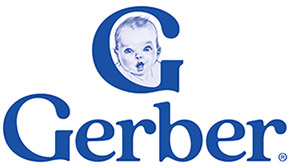The Yeackle Family
The Yeackle family is no stranger to prematurity and birthing complications. When mom, Meg, was pregnant with their first child, Beckett, she encountered some serious issues with the pregnancy. At 21 weeks 3 days, parents Meg and Josh went to see a Maternal Fetal Medicine doctor, where they had a doppler scan to check blood flow and another anatomy scan. Following it, the doctor came in and told them that in a room of one hundred babies, Beckett would be the smallest by far: 0.03% in size. The blood flow from the placenta to Beckett wasn’t great, the amniotic fluid was low, and he was nearly a week behind in growth. Meg was told to keep her stress levels low, so she had to stop working. Looking back she says, "That was probably the most comical thing about it. They told me 'Your baby is in trouble, we can’t give you a reason why, but please stay calm!' Best case scenario, they thought they could make it to 27 weeks.
At 24 weeks gestation, Meg received her first dose of steroids. Every appointment they had a bag packed, ready to be told they were having a baby. They went once per week for about 3 weeks until the blood flow from the umbilical line went into intermittent absent flow. At 26 weeks 6 days gestation, Meg was admitted into labor and delivery for persistent absent flow and decreased fetal movement. She was given another round of steroids for lung development and started a 12-hour magnesium drip to cushion Beckett’s brain and help prevent brain bleeds. Three days later she was taken to the operating room to have a c-section. At 27 weeks 1 day, on October 2nd at 8:55 a.m. Beckett was born.
Meg remembers being so grateful that he weighed more than a pound. She had prayed and begged for grams and ounces while he grew inside of her. Surpassing 500 grams was going to make the biggest difference, because the NICU could work with 500 grams. Beckett only weighed 555 grams, but that felt huge to Meg. He did it. The first three days in the NICU, Beckett gave Meg and Josh a great honeymoon. His saturation and other levels were good and he was doing well on the traditional vent. Then the honeymoon period ended, and he went into respiratory distress. He was switched from a traditional ventilator to a jet ventilator, which pushed in 400+ breaths per minute at a lower pressure to minimize lung trauma while still giving adequate oxygen. On the traditional vent, the pressures required to keep his saturation up could have been detrimental. Things happen so slowly and so quickly at the same time in the NICU. The days blur together. Beckett was put on antibiotics for suspected illness, he received blood transfusions, his oxygen requirements, pressures, and rates went up then down then up again. “They call it a rollercoaster, but it feels more like a freefall – you have no control, you’re holding on for dear life, hoping that at some point you land somewhere soft, and your heart feels like it has dropped out of your body. And it has, because it’s with your baby in the plastic box that helps keep him alive,” said Meg. After 19 long days, she was finally able to hold her baby. She spent 19 days staring at him through holes in plastic, wearing gloves and touching him however and whenever she was allowed. He spent the first months of his life looking at his mom and dad with a mask on. Meg remembers the first time his nurse asked if she wanted to help change his diaper and take his temperature. He was so tiny, his bones the size of a finger. “In that moment it was so exciting, but thinking about it now just makes me ache for the things people take for granted,” Meg said.
She and Josh were there every single day for 112 long days. By the time they were discharged, Beckett weighed 8 lbs. He was discharged by the same nurse who had admitted him. It felt like a conclusion.
Beckett was intubated for about 6 weeks. Then he moved on to RAM for two, CPAP for 2, high flow, then low flow, and came home on ¼ liters per minute after 112 days in the NICU. Beckett has Bronchopulmonary Dysplasia and Chronic Respiratory Failure from his extended time on oxygen. He overcame his Retinopathy of Prematurity. His eyesight is already slightly diminished from this, and now he wears glasses. Since leaving the hospital, he has seen multiple specialists. He regularly sees 2 nutritionists, a physical therapist, an occupational therapist, a pediatrician and, of course, a pulmonologist. Beckett will live with prematurity forever. He will always be a micro-preemie, and it will affect him the rest of his life.
Following the birth of Beckett, Meg and Josh decided to have a second when reassured by doctors and pathologists that the events surrounding Beckett’s birth were unlikely to reoccur. While the circumstances were not the same, their second son, Finn, was born at 34 weeks gestation due to a spontaneous uterine rupture. Meg says, "This pregnancy had otherwise been healthy with no complications. When my uterus ruptured, I was at work. I was not having contractions. One second I was fine and the next I could barely breathe. Once the first responders got there, I directed them to take me to Brookwood Hospital's OB Emergency Department, who were expecting me. The nurses there were on the phone, asking me questions through the EMT the whole ride there. Once there, they quickly discovered how dire the situation truly was. Finn was taken in an emergency C-Section within minutes of my arrival, and I remained in the operating room for hours after, receiving transfusions, platelets and a litany of other medications to help save my life. We have been told by many people that were involved in saving me that Finn and I both were minutes away from death. Had I been at home versus at work (20 minutes away), we would almost certainly both not be here today. Finn spent 8 days in the NICU being assessed for potential brain damage.
This year, we are honored to be the ambassador family for March for Babies to help continue to bring awareness to prematurity, maternal health risks, and to advocate for all first responders and hospitals to be knowledgeable in the face of obstetric emergencies.





